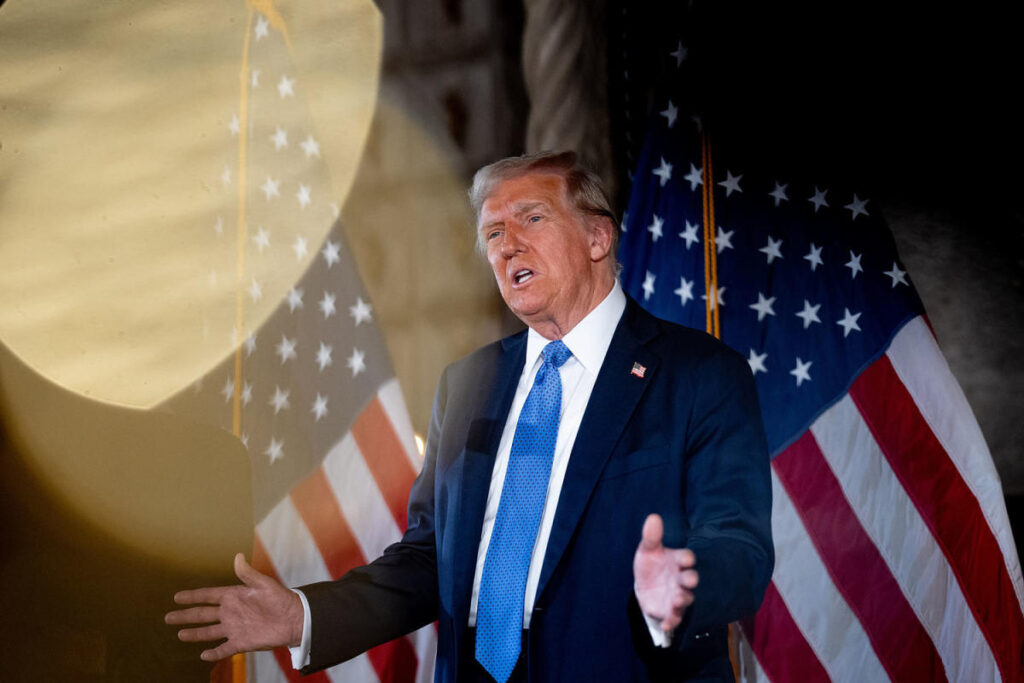In a controversial move, former President Donald Trump has initiated legal action against Ann Selzer and her polling firm, as well as The Des Moines Register and its parent company, Gannett. The lawsuit, filed in Polk County, Iowa, accuses them of consumer fraud and claims they engaged in “brazen election interference” through a poll conducted on November 2, which indicated that Vice President Kamala Harris was leading Trump by three percentage points in Iowa. Despite this poll, Trump won the state with a significant margin, which his legal team argues reflects the poll’s deceptive nature, as they categorize it as “election-interfering fiction.” Trump’s decision to file the suit falls under the Iowa Consumer Fraud Act, highlighting his dissatisfaction with the portrayal of electoral dynamics leading up to the 2024 Presidential Election.
Trump’s rationale for the lawsuit stems from a sentiment of obligation to counter what he perceives as manipulation and misinformation from the media and polling entities. During a discussion regarding the lawsuit, Trump expressed frustration over the poll’s findings, stating that the results were misaligned with the eventual election outcome, claiming the polling misjudgment influenced public perception negatively. Selzer, the pollster behind the survey, announced her intention to cease polling related to political contests immediately after the election, thereby ending her association with such polling endeavors following this contentious episode.
The poll in question showed Kamala Harris with a leading support level of 47% among likely Iowa voters, while Trump garnered 44%. This indicated a shift in expectations, as Trump was anticipated to win Iowa. The legal filings argue that the defendants, alongside Democratic Party associates, aimed to construct a false narrative of inevitability for Harris, thereby misleading voters in the critical final days leading to the election. Amid allegations of a pre-release leak that predicted the poll’s findings, The Des Moines Register has maintained its stance on the credibility of its reporting, asserting that the poll’s details and accompanying demographics were made public to clarify the situation.
In defense of their position, a spokesperson for The Des Moines Register emphasized the thoroughness of their pre-election polling disclosure and expressed confidence in the integrity of their coverage related to the polling incident. Selzer herself opted to refrain from commenting on the legal case. The lawsuit represents an extension of Trump’s broader battle against what he perceives as biased media coverage, echoing his recent successes in defamation settlements, including a notable $15 million from ABC News. Trump is concurrently engaged in additional legal pursuits against the Pulitzer Prize Board for awards given to reports related to his 2016 campaign and allegations of Russian interference.
Legal analysts appear skeptical about the potential success of Trump’s lawsuit, suggesting that the true objective may be less about winning in court and more about discouraging critical media coverage through intimidation tactics. Experts in media law have pointed out that the likelihood of achieving the suit’s aims is minimal, signaling that such legal actions may instead serve as a precedent for future efforts to challenge journalistic integrity and press freedoms. The notion that the lawsuit could chill journalistic practices has been voiced by professionals monitoring the intersection of law and media.
The lawsuit further contends that Trump and his campaign supporters, particularly Iowa residents, were misled by the purportedly manipulated polling data, asserting that the polling miss was intentional rather than coincidental. This narrative aims to dismantle Selzer’s reputation as a respected pollster by alleging a consistent trend of bias against Republican candidates in her polling practices. However, election law experts like Rick Hasen have quickly dismissed the lawsuit, predicting little to no success in the legal venue, indicating a prevailing belief that the suit may predominantly serve as a means for Trump to convey grievances against perceived electoral injustices, rather than to seek substantial legal remedies.

